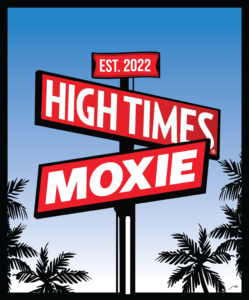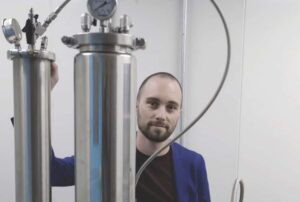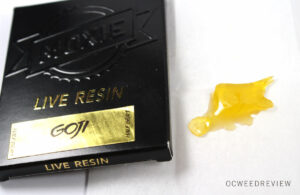With so much product variety in the cannabis marketplace, you hear a lot about CBD vs THC. Do you want a product that has one, the other, or both? Furthermore, which chemical will have what effect?
To answer those questions, you need to understand the chemistry involved.
CBD vs THC 101
Despite their different effects, CBD (cannabidiol) and THC (tetrahydrocannabinol) have almost the same chemical makeup. To start, they’re both cannabinoids, a type of chemical that interacts with the human body’s endocannabinoid system. This system consists of a network of receptors that support vital physical and cognitive functions.
There are two kinds of endocannabinoid receptors. CB1 receptors are located in the brain and are responsible for cognitive processes. CB2 receptors are located in the central nervous and immune systems.
CBD and THC have almost identical chemical structures. The only difference is the makeup of a single atom—it’s truly a microscopic distinction.
As small as it is, though, this difference explains how differently the two behave in the endocannabinoid system.
The Effects of THC
THC is the component of cannabis that gets you high. It activates the CB1 receptor, changing the signals that the brain receives from the endocannabinoid system.
Research shows that THC can increase blood flow to the prefrontal cortex, the region of the brain responsible for focus, decision-making, and other elements of higher-order thinking. Taking THC affects these functions to different degrees depending on the person.
THC also activates the brain’s reward circuitry, the systems that make people feel good and seek out pleasurable activities. Activation of the reward center is part of why people feel euphoric when they use cannabis.
The Effects of CBD
CBD inhibits the CB1 receptors, even as THC activates them. In fact, if CBD is present in high enough concentrations, it can balance the effects of THC. Strains with high CBD levels are often associated with a mellower, less intense high. The more CBD, the mellower the effect usually is.
Some researchers have found that CBD reduces the potential for cognitive side effects in people who consume THC. Higher CBD concentrations are often associated with better memory recall, for example, and lower risk of THC-induced paranoia.
CBD can also enhance some of the positive effects of THC. For example, THC offers powerful pain relief because it activates CB1 receptors in the brain’s pain control area. CBD, meanwhile, has the power to bind to certain pain processing receptors in the spine, creating a more powerful pain control response.
CBD also has positive mental effects unrelated to THC. It may not bind to CB1 receptors, but it does have at least 12 action sites in the brain. These receptor sites explain CBD’s capacity to reduce anxiety, prevent seizures, and even reduce the effects of psychosis.
CBD, THC, and Friends
CBD and THC aren’t the only chemicals in cannabis that affect the brain. There are hundreds of terpenes in cannabis, and these naturally occurring chemicals change the CBD vs THC debate.
Science is still discovering how all of this works together, but one thing is certain—if you want to get high, you need THC. What your high feels like, and what else you experience mentally and physically, depends largely on the CBD concentration in your cannabis.
As for the “should” questions, one isn’t better than the other. It’s all about what you want from your cannabis experience.



